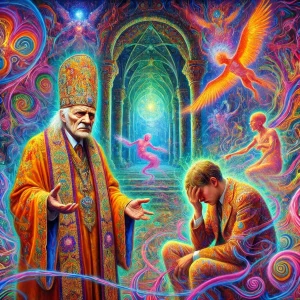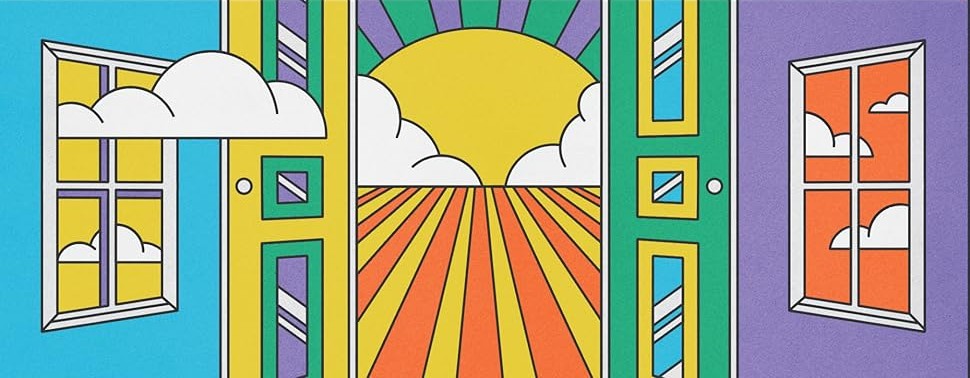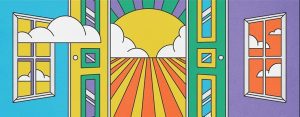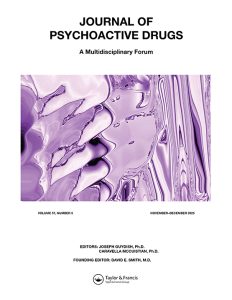 Carl Jung’s views on psychedelics, particularly in relation to their use in spiritual or therapeutic contexts, have been a subject of much discussion. Jung’s caution regarding psychedelics is rooted in his broader concerns about the dangers of direct encounters with the unconscious mind without proper preparation or guidance. His thoughts on the subject are often reflected in his correspondence, most notably in his letters to colleagues and friends.
Carl Jung’s views on psychedelics, particularly in relation to their use in spiritual or therapeutic contexts, have been a subject of much discussion. Jung’s caution regarding psychedelics is rooted in his broader concerns about the dangers of direct encounters with the unconscious mind without proper preparation or guidance. His thoughts on the subject are often reflected in his correspondence, most notably in his letters to colleagues and friends.
Carl Jung’s Caution About Psychedelics
Carl Jung was deeply interested in the unconscious mind and its manifestations, such as dreams, visions, and myths. He believed that the unconscious was a reservoir of both personal and collective experiences, containing not only the repressed elements of the psyche but also archetypes—universal symbols and motifs that shape human experience. Jung’s work sought to explore these elements through methods like active imagination, dream analysis, and psychotherapy.
However, Jung was wary of methods that forced direct and unmediated access to the unconscious. He recognized that the unconscious contained not only healing potential but also dangerous and overwhelming forces. Jung believed that without the right context, preparation, and guidance, individuals might be overwhelmed by these forces, leading to psychological disturbances or even psychosis.
Jung’s caution regarding psychedelics fits into this broader concern. Psychedelic substances, which can induce powerful and vivid experiences of the unconscious, were seen by Jung as a potential risk if used recklessly or without proper understanding. He was concerned that these substances could open the doors to parts of the unconscious that an individual might not be ready to face, leading to destabilization rather than healing.
Jung expressed these concerns in various ways throughout his work and correspondence. One of the most direct references to psychedelics can be found in a letter he wrote to Father Victor White, a Dominican priest and a close friend and collaborator, on 5 December 1952. In this letter, Jung discussed the dangers of directly accessing the unconscious through substances like psychedelics and emphasized the importance of spiritual and psychological preparation.
The Letter to Father Victor White
The letter Jung wrote to Father Victor White on 5 December 1952, where he discusses his concerns about the use of substances to access the unconscious, reads as follows:
Letter from Carl Jung to Father Victor White, 5 December 1952
My dear Victor,
You touch upon the subject of the “mystical experience” and the use of drugs or other means to induce it. This is a topic that requires utmost caution and discernment. The unconscious is a vast and potent force, teeming with energies that can either enlighten or destroy the conscious mind that ventures too far without proper preparation.
The use of substances to induce mystical experiences or to access the unconscious is akin to forcing a door open with a crowbar rather than finding the key. The danger lies in the fact that one may open the door to more than one can handle, bringing into consciousness elements that are far too overwhelming and, in some cases, truly destructive.
The unconscious is not merely a collection of repressed memories or instincts, but a profound and complex realm containing both the light of the Self and the dark shadows of the psyche. When one enters this realm without guidance or the gradual process of integration, one risks being inundated by contents that one is not prepared to confront. This can lead to disorientation, confusion, and even madness.
I must caution against the reckless use of any means to artificially induce these experiences. The way to the Self is through patience, discipline, and the guidance of a seasoned soul. It is a process that cannot be hurried or bypassed through shortcuts. The psyche must be approached with respect, and the integration of unconscious material must be done with care.
I understand the desire to experience the numinous, but such experiences should arise naturally and be integrated consciously. The Self, as the totality of the psyche, should be encountered when the conscious ego is strong enough to endure and assimilate its vastness.
In this matter, as in all things concerning the soul, we must tread with reverence and humility, lest we awaken forces that we cannot control.
With warm regards,
Yours ever,
C.G. Jung
And in a second letter to Victor White dated 10 April 1954 [excerpt]
Is the LSD-drug mescalin25? It has indeed very curious effects — of which I know far too little. I don’t know either what its psychotherapeutic value with neurotic or psychotic patients is. I only know there is no point in wishing to know more of the collective unconscious than one gets through dreams and intuitions. The more you know of it, the greater and heavier becomes your moral burden, because the unconscious contents transform themselves into your individual tasks and duties as soon as they begin to become conscious. Do you want to increase loneliness and misunderstanding? Do you want to find more and more complications and increasing responsibilities? You get enough of it. If I once could say that I had done everything I know I had to do, then perhaps I should realize a legitimate need to take mescalin. But if I should take it now, I would not be sure at all that I had not taken it out of idle curiosity. I should hate the thought that I had touched on the sphere where the paint is made that colours the world, where the light is created that makes shine the splendour of the dawn, the lines and shapes of all form, the sound that fills the orbit, the thought that illuminates the darkness of the void. There are some poor impoverished creatures, perhaps, for whom mescalin would be a heavensent gift without a counterpoison, but I am profoundly mistrustful of the “pure gifts of the Gods.” You pay very dearly for them. Quidquid id est, timeo Danaos et dona ferentes.
This is not the point at all, to know of or about the unconscious, nor does the story end here; on the contrary it is how and where you begin the real quest. If you are too unconscious it is a great relief to know a bit of the collective unconscious. But it soon becomes dangerous to know more, because one does not learn at the same time how to balance it through a conscious equivalent. That is the mistake Aldous Huxley makes: he does not know that he is in the role of the “Zauberlehrling,” who learned from his master how to call the ghosts but did not know how to get rid of them again:
It is really the mistake of our age. We think it is enough to discover new things, but we don’t realize that knowing more demands a corresponding development of morality. Radioactive clouds over Japan, Calcutta, and Saskatchewan point to progressive poisoning of the universal atmosphere.
I should indeed be obliged to you if you could let me see the material they get with LSD. It is quite awful that the alienists have caught hold of a new poison to play with, without the faintest knowledge or feeling of responsibility. It is just as if a surgeon had never learned further than to cut open his patient’s belly and to leave things there. When one gets to know unconscious contents one should know how to deal with them. I can only hope that the doctors will feed themselves thoroughly with mescalin, the alkaloid of divine grace, so that they learn for themselves its marvellous effect. You have not finished with the conscious side yet. Why should you expect more from the unconscious? For 35 years I have known enough of the collective unconscious and my whole effort is concentrated upon preparing the ways and means to deal with it.
-Carl Jung
Carl Jung’s caution about psychedelics is rooted in his profound respect for the unconscious mind and his understanding of the potential dangers of confronting its contents without proper preparation and guidance. Jung’s letter to Father Victor White exemplifies his concerns about the use of substances to access the unconscious, highlighting the risks of such an approach and emphasizing the need for patience, discipline, and careful integration in the journey toward self-knowledge and spiritual growth.
While Jung recognized the potential for mystical experiences and encounters with the numinous, he strongly advised against seeking these experiences through artificial means. For Jung, the path to the Self was a delicate and gradual process that required reverence for the psyche and respect for its depths, a view that remains relevant in contemporary discussions on the therapeutic use of psychedelics.




